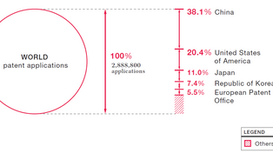"What are the differences between patent protection and trade secret protection?"
- Admin

- May 23, 2023
- 2 min read

Assuming Company A has secured a patent for its invention, any technology that falls within the scope of the patent constitutes patent infringement, whether it is developed by the infringing person or copied from Company A's patented technology. However, trade secret protection is different from patent protection. One of the fundamental premises for trade secret infringement is that the information is obtained through unethical means such as theft, bribery, etc. If the technology is obtained through independent effort or reverse engineering, it does not infringe on the trade secret. Nonetheless, this does not imply that patent protection is superior to trade secret protection in all aspects. A patent is protected for a limited period, while a trade secret can be protected permanently if adequate measures are in place to keep it confidential, such as the Coca-Cola formula. Additionally, if the invention being protected is a method rather than a product, it is difficult to obtain evidence of another person's use of the method, which makes it difficult to enforce one's rights through litigation. In this scenario, if the method is difficult to obtain, it is more appropriate to protect it as a trade secret. Nevertheless, the trade secret's premise is that the technology is a "secret," and if someone else has made the same technology public, then the trade secret will lose its significance. Moreover, if the right holder wants to commercialize its own technology, convert it into shares, or license others to use it, then patent protection is more appropriate than trade secret protection since the more people using the technology, the greater the risk the secret will be leaked. In general, when deciding between patent protection and trade secret protection, various factors must be considered.

































Comments